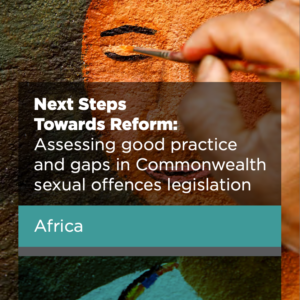South Africa’s sexual offences laws are in the Criminal Law (Sexual Offences and Related Matters) Amendment Act 2007, as amended (CLSO). The rules of evidence that relate to sexual offences are in the Criminal Procedure Act 1977 as amended (CPA). The common law and relevant case law are not assessed in this report.
All of the provisions of the CLSO covered by this review and the criteria below meet good practice standards. For example, consensual same-sex sexual activity is not a crime, sexual assault offences cover all forms of non-consensual sexual penetration – by penis, objects and other body parts – of all orifices and non-penetrative offences are broadly defined to include all forms of sexual assault. Consent is defined appropriately and there is a comprehensive range of specific child sexual assault provisions, including ‘grooming’ for sexual purposes. The CLSO also provides for close-in-age defences to child sexual assaults for young people who engage in consensual sexual activity with their peers. Consensual sexual activity with a person with a ‘mental disability’ is not criminalised.
South Africa is a state party to relevant international and regional human rights treaties, including the Convention on the Elimination of All Forms of Discrimination against Women, Convention on the Rights of the Child, Convention on the Rights of Persons with Disabilities, Convention against Torture and Other Cruel, Inhuman or Degrading Treatment or Punishment, and International Covenant on Civil and Political Rights. It is also a party to the African Charter on Human and Peoples’ Rights and the Protocol to the African Charter on Human and Peoples’ Rights on the Rights of Women in Africa (Maputo Protocol).
The full assessment of South Africa is available here.



